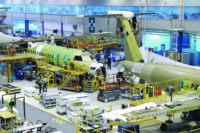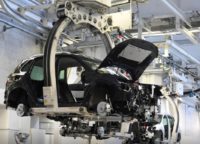Are Manufacturers in Taiwan Shifting from Electronics to Defense Products?

TAINAN, Taiwan—Source: Taiwan's companies make the world's electronics. Now they want to make weapons by Emily Feng, NPR
As China's military might grows, the Asia Pacific region is in an arms race to both deter and prepare for war. Taiwan is no exception. It's a self-governing island that China claims as its territory, to be conquered by force if necessary. Taiwan has extended its mandatory military conscription period for men from four months to a year and is intensifying its own military drills. In July, the White House announced it would send Taiwan $345 million worth of weapons, taken directly from the U.S.' own stockpile for the first time, as well as other defense services, such as training.
Now Taiwanese private companies are also pivoting into the defense sector and making weapons, and U.S. defense contractors are exploring ways to manufacture and design noncore components of their weapons systems in Taiwan. To do so, they will need to work within the Taiwanese military's rigid approach to reform and a historical preference to rely on government research institutes for equipment upgrades.
The U.S. passed an act of legislation to help Taiwan defend itself against China, and it sells at least hundreds of millions of dollars of weapons and defense systems like F-16 fighter jets to Taiwan each year. But there are significant delays in delivering the weapons. The U.S. is depleting its own inventory as it ships arms to help Ukraine. Moreover, the Pentagon's bureaucratic processes have delayed weapons shipments to Taiwan by years in some cases.
This has created an opening for companies in Taiwan, which argue they have the technical know-how to produce some of the components that go into the weapons systems and equipment its military buys elsewhere, primarily from the U.S.
Taiwanese companies argue, making arms and defense equipment is a natural step. The island's economy boomed in the 1970s as it became a manufacturing hotspot for cheap plastic and electronic components. Now it is the world's foremost semiconductor manufacturing base. Now, it is also pivoting to defense, making gun scopes and specialty lenses that go into Taiwan's anti-aircraft rocket launchers. For the entire story, visit www.npr.org.
Looking for a reprint of this article?
From high-res PDFs to custom plaques, order your copy today!




